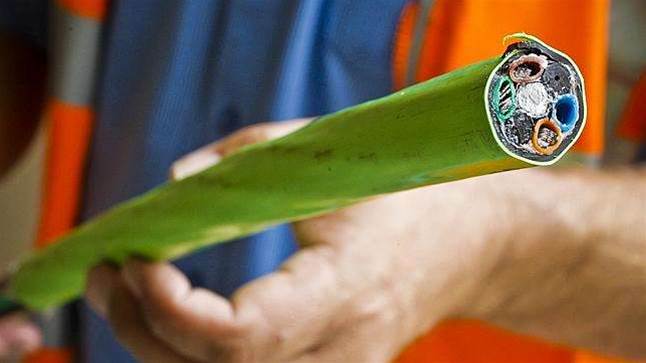NBN boss Bill Morrow is studying ways of reducing costs for smaller internet service providers to access the national broadband network, in a move that is likely to anger large telcos.

In a speech to the National Press Club today, Morrow said around 40 of the NBN's national 121 points of interconnect (PoI) are currently too expensive for smaller ISPs to reach.
NBN retail providers can either build their own links to the PoIs or buy backhaul from a provider with existing infrastructure. For smaller players, the latter option is often more cost effective.
But for 40 of those PoIs, Morrow said, the distance for the backhaul made connecting more expensive.
He said his concern was these costs would present a barrier to entry for smaller ISPs that would ultimately limit choice for end users.
"If this turns out to be the case, there are a number of options we could explore to boost competition however before we do anything nbn – our preference would be to see the market respond," Morrow said.
Fairfax Media reported in August NBN was considering connecting the PoIs itself and selling wholesale services directly to small players.
"We are working with others who see a market opportunity by solving for this remote regional point of entry," Morrow said today.
"At the end of the day, it’s about levelling the playing field and ensuring there is a low barrier to entry and we would hope the markets will do just this."
Smaller ISPs had urged the ACCC in 2012 to reconsider its 121 point of interconnect model over fears the cost of renting backhaul would push them out of the market.
Macquarie Telecom policy director Matt Healy labelled the issue a "chicken and egg problem".
“Smaller retailers cannot bring competition to locations without competitive wholesale backhaul connections, but competitive wholesalers are reluctant to invest ahead of retail service providers," he said.
“Morrow has accepted the NBN could have to play a role in forcing the hand of the market, or stepping up if it turns out no one else is willing to go to some locations."
Anger from big telcos
Morrow's plans are likely to draw the ire of Australia's larger telecommunications companies like Telsta and Optus, who have spent millions connecting cables to the 121 points of interconnect. Wholesale services are big business for the telcos.
Optus regulatory affairs vice president David Epstein said the telco was keen to learn more about NBN's proposal.
"It appears to be reopening a policy decision that was settled several years ago," he said.
"The concern is that telcos have made significant investments and decisions about network configuration assuming they could rely on the original decision. Such a change requires more consultation."
A Telstra spokesperson said the ACCC had previously reviewed the location of NBN's PoIs and found there was sufficient backhaul competition at each.
"In 2013 the ACCC found that over 94 percent of PoIs have three or more backhaul competitors and all of them have two or more backhaul competitors," they said.
"The ACCC’s recent draft decision to reduce backhaul prices will further assist retail service providers to compete in what is already a competitive market for backhaul from these PoIs.
"We don’t see a need for NBN Co to extend into this market.
"It is important that the ACCC and NBN Co refrain from making decisions that undermine continued investment in these markets."
NBN is also gearing up to launch its fibre-to-the-node product at an event on Monday.
In April the company revealed it would start offering active services to premises within its 1000-node construction trial of fibre-to-the-node technology from September.
"The launch is a key milestone that will see our retail providers begin developing their offers to consumers," Morrow said today.
"We were excited about the recent, final approval for our revised deals with Telstra and Optus. These were the last of the building blocks to fall in place.
"We are currently in the planning stage for two million FTTN premises, with millions more to come as we head towards the year 2020."


_(20).jpg&h=140&w=231&c=1&s=0)
.png&h=140&w=231&c=1&s=0)

_(28).jpg&h=140&w=231&c=1&s=0)



_(26).jpg&w=100&c=1&s=0)

 iTnews Executive Retreat - Security Leaders Edition
iTnews Executive Retreat - Security Leaders Edition












_(1).jpg&h=140&w=231&c=1&s=0)



